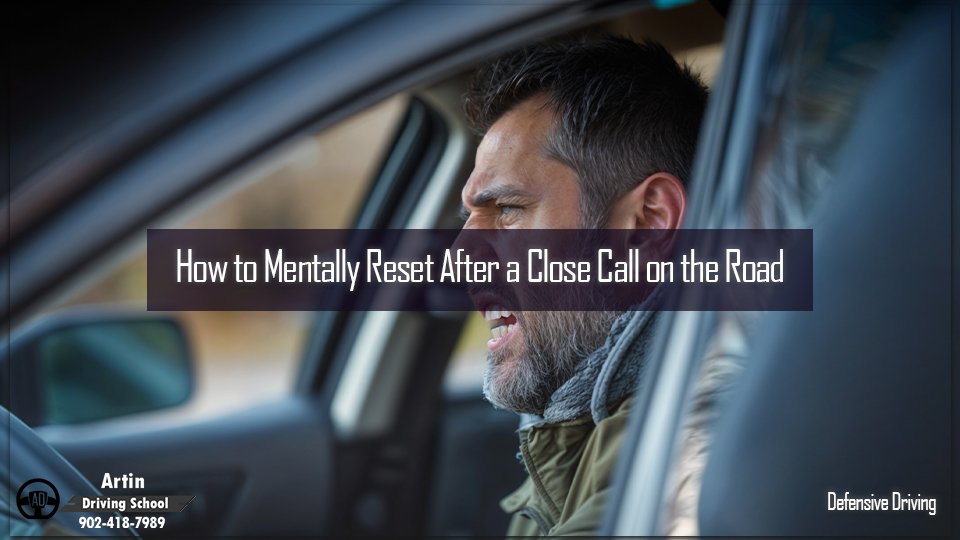How to Mentally Reset After a Close Call on the Road
A close call while driving can be more than just a scare. Whether it was a last second brake or a near miss on the highway, these moments stay with you. Knowing how to reset after a close call is essential for your focus, safety, and confidence as a driver in Nova Scotia.
Driving in unpredictable conditions, like coastal fog, highway construction, or heavy traffic, can put even experienced drivers to the test. This guide walks you through how to calm your nerves, regain your confidence, and move forward after a close call on the road.
Table of Contents
- Why Close Calls Affect Us
- What to Do Right After a Close Call
- How to Rebuild Driving Confidence
- When to Seek Support After a Close Call
- How Defensive Driving Supports Mental Recovery
- Final Note
Why Close Calls Affect Us
When your body reacts to sudden danger, it’s not just physical. Your brain gets flooded with stress hormones. That reaction is normal, but it can leave you on edge. Even hours later, you may find yourself gripping the wheel too tightly or avoiding the route where it happened.
What to Do Right After a Close Call
The moments after a close call are when the body is most reactive. Take time to reset your mind and body with these actions:
- Pull over somewhere safe and take a break.
- Breathe slowly and give your nervous system a chance to calm down.
- Remind yourself what went right. Your quick reaction may have prevented a serious accident.
If the incident involved another driver behaving dangerously, you can report it to local RCMP. Nova Scotia offers non emergency reporting options via Justice and Policing Services.

How to Rebuild Driving Confidence
After a scary moment, it’s normal to second guess yourself. But your ability to reset after a close call often improves by driving regularly and practicing safe habits:
- Stick to familiar routes for a few days.
- Avoid heavy traffic until you feel comfortable again.
- Focus on the basics, steady speed, checking mirrors, and staying present.
When to Seek Support After a Close Call
If the experience continues to affect your driving, it may be more than a short-term reaction. Persistent anxiety or avoidance can be signs of trauma. Many Nova Scotia drivers have sought support from mental health professionals to manage driving related stress.
There’s no shame in asking for help. Counseling or therapy can give you tools to rebuild trust in yourself and the road.
How Defensive Driving Supports Mental Recovery
One of the most effective ways to move forward is by building confidence through defensive habits. Our Defensive Driving Course in Halifax teaches techniques that prepare drivers for the unexpected and help reduce future close calls.
From scanning techniques to space management, these lessons can help you reset your mindset and get back on the road with better awareness and calm control.
Final Note
A close call doesn’t mean you’re a bad driver. It means you’re human. What matters is how you respond. When you choose to reflect, adjust, and rebuild your confidence, you’re already improving. Let the moment strengthen your awareness. Let it help you grow.
And if you’re still feeling unsure, remember that learning how to reset after a close call is something every driver can benefit from, even years into driving.
The information provided on this post is for general informational purposes only and is not intended to serve as professional advice or guidance. While Artin Driving School strives to ensure the accuracy and timeliness of the information shared, Artin Driving School makes no guarantees, warranties, or representations regarding the completeness, reliability, or suitability of any content posted.





